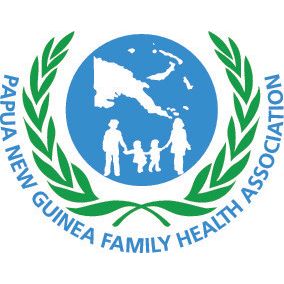

| 31 March 2016
Pro Familia - Germany
Pro familia advocates for the rights to individual self-determination in sexuality and family planning and is committed nationally and internationally to sexual and reproductive health and rights. For pro familia, sexual and reproductive rights and health rank among human rights. pro familia is the leading professional association on sexuality and partnership in Germany. With information and counselling services, pro familia wants to contribute to women, men and young people being able to live their sexuality and sexual orientation in a self-determined way, to parenthood being a free decision and to a satisfying sexual life without fear of unwanted pregnancies or sexually transmitted infections, including HIV, and to people being able to participate in scientific progress. The services offered in the 180 counselling centres nationwide include counselling, information and age-appropriate sex education on partnership, sexuality, sexual orientation, contraception, pregnancy, family, unfulfilled desire to have children and reproductive medicine, prenatal diagnostics, birth, financial support, unwanted pregnancy as well as separation and divorce. Pro familia publishes information brochures for clients and specialist publications for doctors, counsellors and educators, organises specialist conferences, lobbies for sexual and reproductive health and rights and offers a wide range of further and advanced training. In the field of sexual education, it is committed to human rights education.

| 09 December 2020
Papua New Guinea Family Health Association
The Papua New Guinea Family Health Association (PNGFHA) was established in 1981 and registered in the same year under Section 7 of the Associations Incorporation Act, Papua New Guinea. PNGFHA became an IPPF Collaborative Partner in 2001 and then an Associate Member, approved at the December 2020 Board of Trustees meeting. The Association's Head Office was originally based in Lae, Morobe, but was relocated to the capital Port Moresby, in 2015. PNGFHA currently operates across 8 static clinics in Port Moresby (3), Lae, Markham and Bulolo (Morobe Province), Goroka (Eastern Highlands Province), and Kokopo (East New Britain Province), and are operated from facilities provided either by the Provincial Health or the district authorities. PNGFHA has a staff of 25, both clinical and non-clinical, and is supported by an extensive network of volunteers. Each clinic has regular outreach services to remote populations, providing safe and confidential SRH services and raising awareness. In 2021, PNGFHA delivered 220,038 SRH services to 53,497 clients, more than 90 per cent of whom were poor/ vulnerable. The clinics provide a wide range of SRH services including STI and HIV awareness, family planning, responding to cases of gender-based violence, and counselling. Legal services for survivors of sexual and gender-based violence (SGBV) are also provided due to need. Other programs include the youth/adolescence comprehensive sexuality education with out-of-school and in-school youths. Various outreach programs such as mobile clinics and awareness have also been implemented in partnership with local Provincial Health authorities. Currently PNGFHA have 3 furnished operational youth centres and youth clinic which provide support for the youth volunteer network, community outreach, CSE both in and out of school. Youth friendly spaces offer youth the opportunity to access information, receive counselling and a friendly safe space where young people can meet and share ideas. The youth friendly clinic provides access to quality and relevant youth centred SRH services and referrals, in the case of SGBV, by staff that are sensitive and trained to dealing with young people. Outreach involves activities mostly identified by the young people themselves, ranging from awareness in a school settings and communities, during a community event, community and government organised activities such as cultural shows and sports events. Through outreach events, trained youths are able to reach out to their peers and motivate them to access more information and services.







